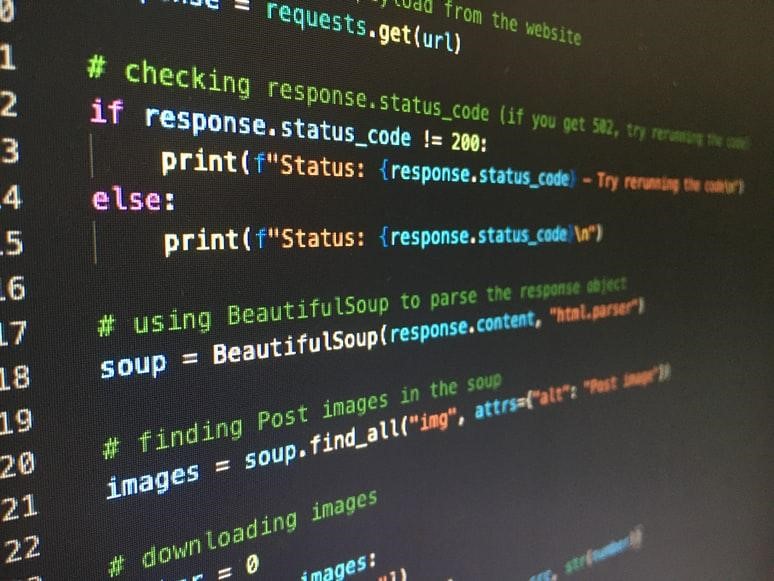
How to Improve Python Coding Skills: 8 Effective Strategies
Python is one of the most popular programming languages in the world. It has been successfully used in a broad range of situations and has become the basis for some of the most famous websites of all time.
Since Python is a general-purpose language, it can be used in almost any scenario, which makes it an appealing language to learn when you're trying to become a versatile programmer who can tackle websites, software, machine learning, and almost anything else.
Even though there are hundreds of programming languages out there and some might argue that there are more modern alternatives to Python, it will still be used for many years and can be a great tool for achieving many different outcomes.
But even though Python itself can be relatively intuitive to learn, understanding the various frameworks and best practices involved with using Python can be a big challenge. And to avoid that, it's important to have a structured process that allows you to boost your Python programming skills while also helping you develop project ideas that are relevant and interesting.
In this article, we'll explore some of the most helpful tips for mastering the Python coding language. But first, let's understand what it is, how it came to be, and why it became so popular.
Python: a Brief Introduction
According to the official definition, Python is an interpreted, object-oriented, high-level programming language with dynamic semantics. It's used to build websites, develop software, and solve a variety of problems through a versatile and beginner-friendly coding language.
In 2021, Python was the second most popular language among programmers, and the current trends indicate that it's not going away any time soon.
This popularity means that knowing the Python language is a key part of success in a variety of professions. Whether you want to become a programmer, a data analyst, a software engineer, a machine learning engineer, or a web developer, you will likely need to have a good understanding of Python and know how to use it to succeed and have confidence in your Python skill level.
The good news is that despite being so versatile, Python is actually a pretty intuitive and beginner-friendly coding language, which means you can get started relatively quickly and build your knowledge as you progress. Even if some aspects of mastering Python can be a bit tricky and can come with a longer learning curve.
Let's explore the main steps of mapping out your learning process and staying on track as you become better at working with Python.
Tips for Improving Python Coding Skills
Now that we've explored the basics of what Python is and what it can be used for, it's time to dig into the most effective tips beginner programmers can use to improve their current Python programming skills and overcome some of the most common coding challenges they might face.
Put Theory Into Action
There are a ton of resources for learning Python online. And while that's generally good news, you can't expect to read up on theory and become a competent Python coder once you're finished with a book, course, or article.
Instead, you need to develop a habit of improving your Python skills every single day, making it a part of your daily life so that you don't stop moving forward. Sure, the process of sticking to a routine can be challenging at first, but it will eventually become an indispensable part of your life, which will make it easier to maintain momentum and keep getting better.
If you want to improve the likelihood of your Python coding habits sticking, consider starting small and building on your accomplishments as you get better. Even 20 minutes of actionable practice each day can be a great foundation for bigger and more immersive learning challenges down the line.
Systemize Your Learning

When learning a coding language, one of the most discouraging parts of the process is not being sure what to do next. Without a clear structure, the experience can feel frustrating and even overwhelming, which causes many people to quit before they can make any real progress. That's especially true in the later stages of the learning journey when the initial excitement might have worn off and you have to push through challenges you're not sure how to tackle.
To combat that, it's a good idea to systemize your learning experience as much as possible, especially in the early stages while you are still full of enthusiasm. While it's impossible to map out the entire learning process, you can rely on resources such as a programming book or structured advice from an experienced coder to map out a likely journey of what you will need to master along the way.
For one thing, make sure that the resources you are using cover the fundamentals of learning Python that you will need in order to cover more advanced problems and projects. These include variables and types, string formatting, basic operators, lists and dictionaries, conditions, functions, list comprehensions, classes and objects, just to name some of the key aspects to know. The good news is that most popular resources cover these really well, presenting them in a way that's easy to navigate and understand.
Consider learning at least a couple of Python libraries that can serve as a way to accelerate projects and allow you to not have to type out each line of code for specific tasks you want to accomplish. There's a variety of libraries for various purposes and functions, so pick something that you think will be useful and start learning it and noting ways you could apply the code in the future.
At the same time, as you're going through the materials, make sure you are engaged and take notes so that you can apply the specific examples and knowledge in the work and exercises you are doing.
Embrace Your Mistakes
Bugs are an inevitable part of coding. In fact, even the most experienced coders can't eliminate bugs from their code and need to spend time correcting them to achieve the results they want.
As a beginner, you will surely make many mistakes that will cause the programs you're writing to break down. But instead of treating that as something to avoid, you should embrace each mistake as a unique learning opportunity that will give you real-life insights about how Python works and what you can do better next time.
At the same time, read up on the Python debugging best practices and develop a process that can give you more consistency and ensure that you don't miss mistakes that could cause problems later.
Become Part of a Community
Learning the Python language is a long and sometimes tedious process. But it can become much more fun and productive if you have like-minded peers to help you overcome challenges and vent about issues.
When working in a community, you will become much better at solving mistakes and recognizing the common obstacles many people are facing. Seeing that others struggle just as much (if not more) than you will help you maintain focus and confidence when it seems like mastering Python is an insurmountable challenge.
At the same time, you can share and learn valuable insights about how to fast-track the learning process, what resources to use, and quick tips in almost any situation you could be dealing with. By sharing insights and helping others you will also reinforce the things you learn and become more confident in applying them.
Learn from Experienced Developers and Teachers
Working with people on a similar journey as yours is a great method for quickly improving your Python skills. At the same time, you want to seek guidance from those who are at a more advanced stage than you so that you can get a more rounded understanding of what you're doing well and what approaches you might need to change.
The chances are that the tough problems you are currently facing have relatively simple solutions, at least if you can find a person who has dealt with countless similar situations before and can provide you with a very specific solution. And that can mean either reaching out to Python coders or seeking a Python tutor who can help you work through the challenges.
However, if you want to maintain the relationships you build with experienced Python coders, make sure you value their time and only come to them with good and well-thought-out questions that you can't figure out on your own.
Always provide the full context of what you are trying to do and list the things you have tried. Explain what you think might be causing the problem and share everything you can so that the person you're asking can get a quick and comprehensive view of the issue.
Cutting through to the very heart of the issue saves time for both the person you're asking and yourself, which will allow you to move to implement their suggestions faster. At the same time, you will learn to communicate more clearly, and through that will get better at breaking down the problems in a way that allows you to address them on your own.
Take on a Project

When you're taking a Python course or going through a book, you will likely have plenty of practice through exercises and challenges. But once you become better at some of the essential data structures like strings, dictionaries, sets, as well as object-oriented programming, you can start creating something of your own.
It really doesn't matter what type of project you decide to take on, as the important part is not the outcome you're trying to achieve but rather the process of tackling a real-life project that will expose you to challenges in a more unpredictable and engaging way.
There is basically a limitless amount of cool and fun Python projects for beginners, so if you don't have an idea of your own you can always look for inspiration online. Whether it's a simple game, a web crawler, or even a music player, Python's versatility means you can get working on many exciting little projects that will not only be useful for learning but highly rewarding as well.
Work in Sprints

Studying the theoretical part of Python and then applying what you learn in practice is an intense process. And that means it can quickly take a toll on your mental abilities since the amount of information you are dealing with when learning new concepts or debugging an issue is enormous.
Because of that, you need to have a reliable process for tackling each challenge with a fresh mind and avoiding the risks of burning out and making mistakes because of it.
For many people learning the Python language, the best approach is learning in sprints. Whether it's 20, 30, or even 60 minutes, setting a time limit for learning and then taking a break will help your mind stay sharp and ready to respond to anything you might have to overcome.
Start Now
Getting on the path of improving your Python skills can offer countless opportunities for your career. But it's also a time-consuming goal that will require commitment, dedication, and a lot of hard work.
Because of that, it may be tempting to postpone the learning process until you have more time. Or at least until tomorrow.
But while it may be easier to delay the learning process, there's no better time to begin than right now. With the countless resources for learning Python available online and offline, you can get started in just a few minutes and be on your way to reaching your goals in no time.
Bottom Line
Python remains one of the most versatile and popular coding languages today. It can be applied to almost anything you might want to take on as a personal project, and can also be a valuable skill to have when progressing your career.
The tips shared above provide a solid framework for planning your learning steps, staying motivated, and connecting with like-minded peers who can help improve your Python coding skills.
